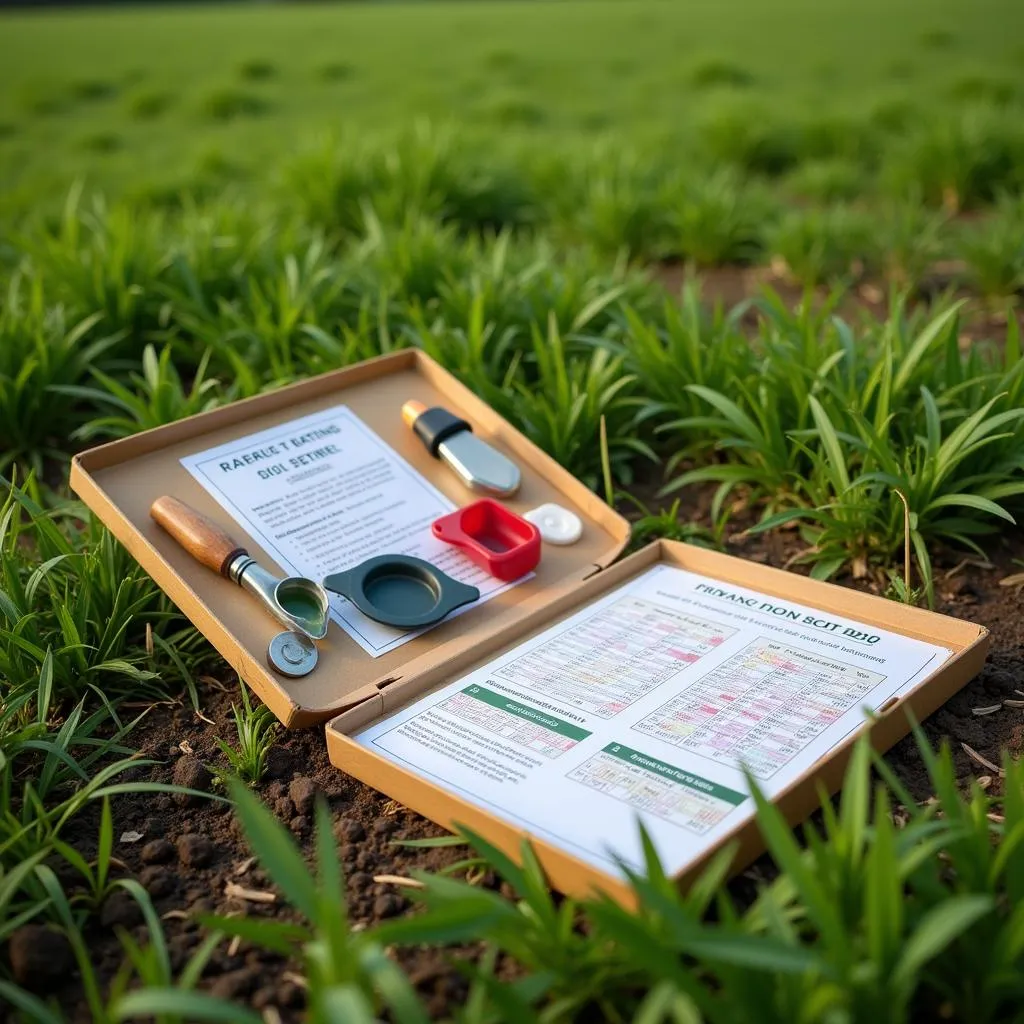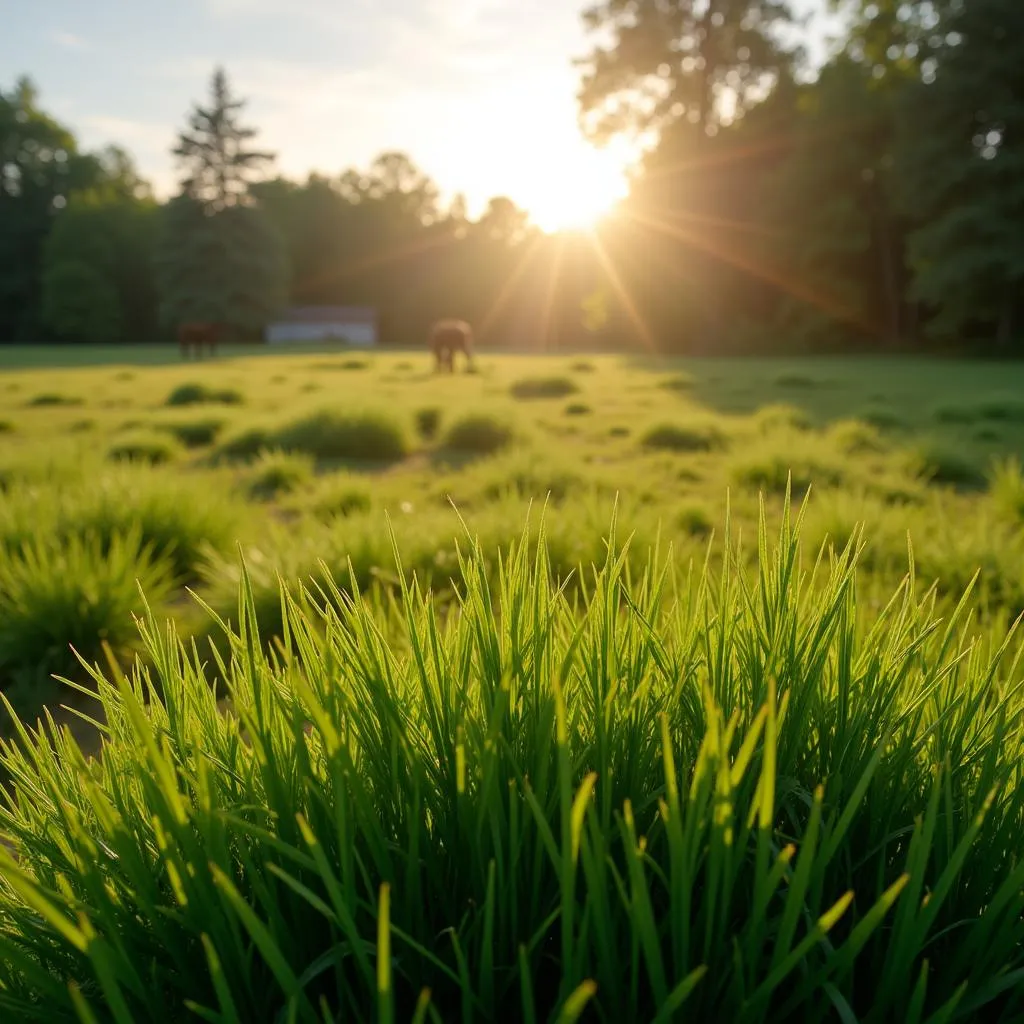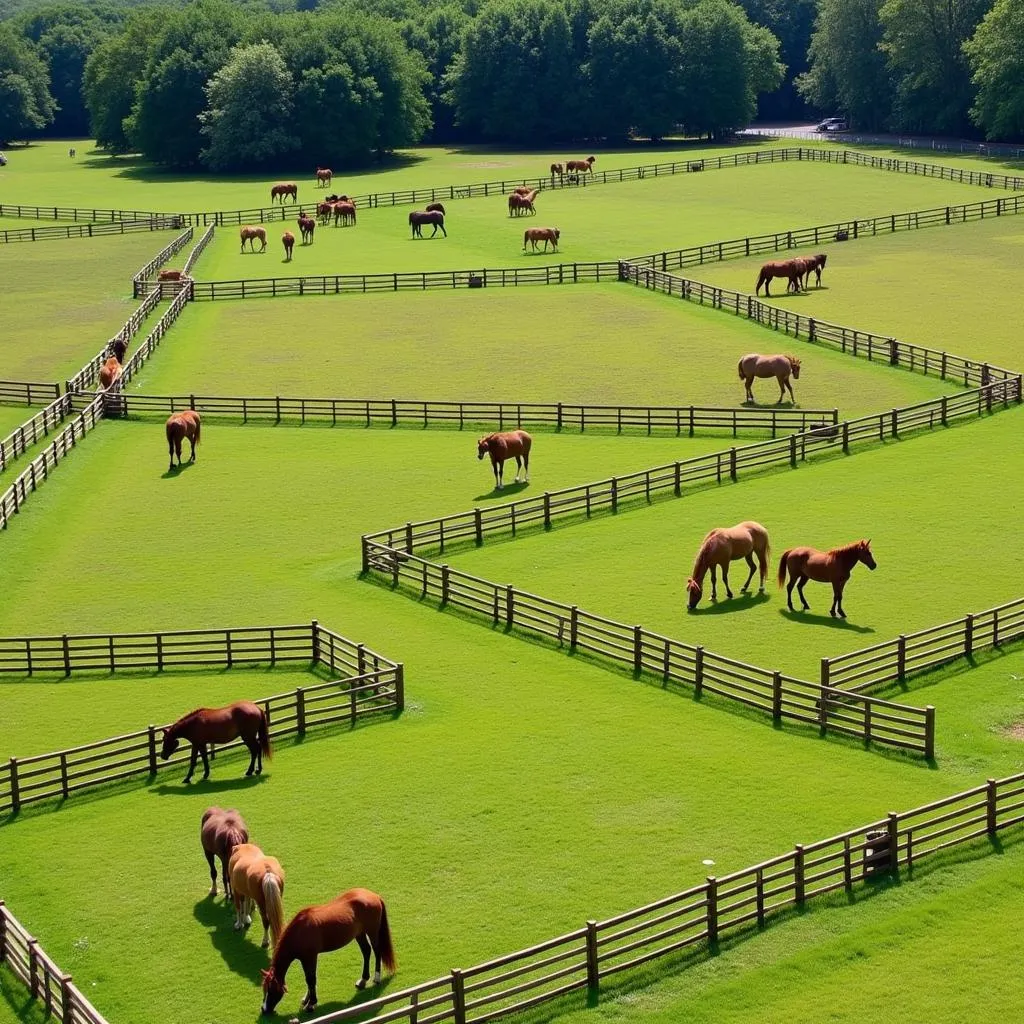Choosing the best seed mix for your horse pasture is crucial for your equine companion’s health and happiness. A thriving pasture not only provides nutritious grazing but also enhances the beauty and functionality of your property. This guide will delve deep into the factors to consider when selecting the ideal seed mix for your horse pasture.
Understanding Your Pasture’s Needs
Before rushing into purchasing a seed mix, it’s essential to assess your pasture’s specific needs. Factors like climate, soil type, and intended use play a significant role in determining the best seed mix for your horses.
Climate Considerations
The climate in your region heavily influences the type of grasses and legumes that will thrive in your pasture. Cool-season grasses, such as Kentucky bluegrass and orchardgrass, are ideal for cooler climates with moderate summers. Warm-season grasses, like Bermuda grass and Bahia grass, are better suited for hotter, drier regions.
Soil Testing: The Foundation of a Healthy Pasture
Knowing your soil’s pH level, nutrient content, and drainage capabilities is essential for selecting the right seed mix. A simple soil test can provide valuable insights into these factors, helping you choose grasses and legumes that will thrive in your pasture’s specific conditions.
 Horse pasture soil testing
Horse pasture soil testing
Defining Your Pasture’s Purpose
Will your pasture be used primarily for grazing, or will it also serve as a riding arena or exercise area? Different grasses have varying levels of tolerance for traffic and grazing pressure. For high-traffic areas, choose durable grasses like perennial ryegrass or tall fescue.
Essential Components of a Horse-Friendly Seed Mix
A well-balanced horse pasture seed mix typically consists of a blend of grasses and legumes, each contributing to the overall health and nutritional value of the pasture.
Grasses: The Backbone of Your Pasture
Grasses form the foundation of any good horse pasture, providing essential fiber for digestion and supporting healthy hoof growth. Popular choices for horse pastures include:
-
Orchardgrass: This versatile, cool-season grass is known for its high palatability and rapid regrowth.
-
Kentucky Bluegrass: Prized for its dense, attractive appearance, Kentucky bluegrass is a palatable and nutritious option for horse pastures.
-
Timothy Grass: This cool-season grass is a favorite among horse owners for its high fiber content and low sugar levels, making it an excellent choice for horses prone to laminitis.
 Timothy grass growing in a horse pasture
Timothy grass growing in a horse pasture
Legumes: Boosting Nutrition and Soil Health
Legumes, such as alfalfa and clover, are valuable additions to horse pastures. They provide a rich source of protein, essential nutrients, and nitrogen to the soil, promoting healthy grass growth.
-
Alfalfa: This highly palatable legume is a powerhouse of protein and calcium, making it a beneficial addition to pastures grazed by growing horses or lactating mares. However, it’s essential to manage alfalfa carefully, as its high sugar content can pose a risk for laminitis.
-
Clover: Clover varieties, such as white clover and red clover, are highly palatable and nutritious legumes that fix nitrogen in the soil, reducing the need for chemical fertilizers.
Avoiding Toxic Plants in Your Horse Pasture
While many grasses and legumes are beneficial for horses, some plants can be toxic and should be avoided in your pasture. Common toxic plants include:
-
Buttercups: These yellow-flowered plants contain a toxin that can cause mouth irritation and digestive upset in horses.
-
Bracken Fern: Bracken fern contains a carcinogenic substance that can lead to various health problems in horses, including neurological disorders.
-
Yew Trees: All parts of the yew tree are highly poisonous to horses, causing sudden death in severe cases.
Maintaining a Healthy Horse Pasture
Choosing the right seed mix is only the first step in creating a thriving horse pasture. Regular maintenance is crucial for ensuring its long-term health and productivity.
-
Mowing: Regular mowing helps prevent weeds from establishing themselves and promotes dense, healthy grass growth.
-
Fertilizing: Soil testing can help determine the specific nutrient needs of your pasture. Fertilizing based on soil test recommendations ensures optimal grass growth and minimizes nutrient runoff.
-
Rotating Pastures: Rotating horses between different pastures allows grazed areas to rest and recover, preventing overgrazing and promoting healthy plant regrowth.
 Horses grazing in a rotated pasture
Horses grazing in a rotated pasture
Conclusion: Nurturing Your Horse’s Health Through Optimal Pasture Management
Selecting the best seed mix for your horse pasture is a crucial investment in your equine companion’s well-being. By carefully considering factors like climate, soil type, and intended use, you can create a thriving pasture that provides nutritious grazing, enhances your property’s beauty, and contributes to the overall health and happiness of your horses.
FAQs: Best Seed Mix for Horse Pasture
1. What type of grass is best for horses with laminitis?
Timothy grass is a low-sugar, high-fiber grass that is an excellent choice for horses prone to laminitis. Other suitable options include orchardgrass and fescue varieties with low sugar content.
2. How often should I fertilize my horse pasture?
The ideal fertilization schedule for your horse pasture depends on factors like soil type, grass species, and grazing intensity. Annual soil testing is recommended to determine specific nutrient needs and adjust fertilization practices accordingly.
3. How can I prevent weeds from taking over my horse pasture?
Regular mowing, proper fertilization, and overseeding bare spots are essential practices for weed control in horse pastures. Additionally, rotating pastures can help prevent overgrazing, which weakens grass and allows weeds to establish themselves.
4. Can I plant alfalfa in my horse pasture?
Alfalfa can be a valuable addition to horse pastures, providing a rich source of protein and calcium. However, it’s crucial to manage alfalfa carefully due to its high sugar content, which can pose a risk for laminitis.
5. What are some signs of a healthy horse pasture?
A healthy horse pasture typically exhibits dense, lush grass growth, minimal weed presence, good drainage, and healthy soil with adequate organic matter. Additionally, horses grazing in a healthy pasture should maintain a healthy weight and exhibit signs of good health and well-being.
6. How can I learn more about dried horse manure?
For insights into managing horse manure, you can explore our article on dried horse manure, a valuable resource for sustainable pasture management.
7. What are the benefits of linseed for horses?
Linseed can be a beneficial supplement for horses, and you can discover its advantages in our article on the benefits of linseed for horses.
Need Assistance?
Contact us at Phone Number: 0772127271, Email: [email protected] or visit us at QGM2+WX2, Vị Trung, Vị Thuỷ, Hậu Giang, Vietnam. Our dedicated customer support team is available 24/7 to assist you.